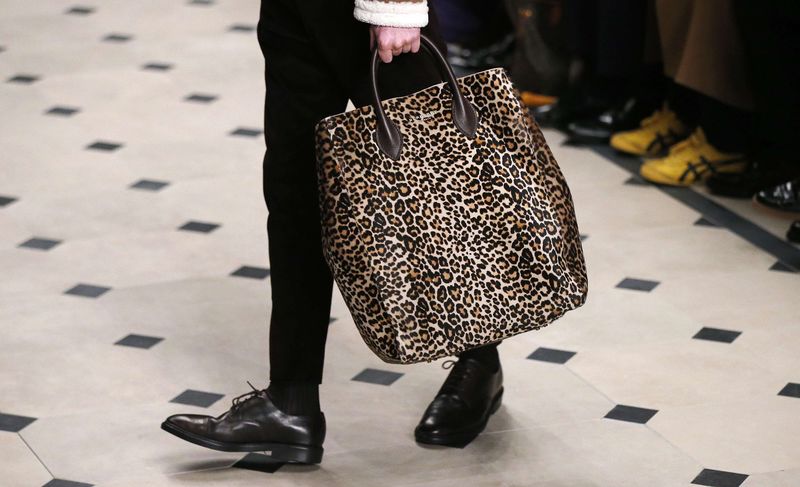By Emma Thomasson
BERLIN (Reuters) - A fall in sales in Hong Kong in the final quarter of 2014 could hit Burberry's full-year profitability, the British luxury brand said on Wednesday, even as a relaunch of its trademark trench coat boosted demand elsewhere.
Pro-democracy protests began choking parts of the Asia financial centre in late September, disrupting business in one of the world's top markets for luxury companies, which accounts for about 10 percent of Burberry's global sales.
However, Burberry made up for the dip with double-digit percentage sales growth in the Americas and Europe, Middle East and Africa, helped by the relaunch of its trademark trench coats with camel, red and black-check patterned linings, backed by ads featuring British models Kate Moss and Cara Delevigne.
Burberry said retail sales rose 14 percent to 604 million pounds in October-December, its fiscal third quarter, with comparable growth of 8 percent, steady on the previous quarter and beating analysts' average expectations.
Burberry shares, trading at a premium to luxury rivals such as LVMH (PA:LVMH) and Kering (PA:PRTP) on 21 times forecast earnings, were down 1.4 percent to 1,640 pence at 0855 GMT, broadly in line with the UK's benchmark FTSE-100 index (FTSE).
"The market does not seem to give much credit to Burberry's superior sales momentum," said Citi analyst Thomas Chauvet, adding this could be due to uncertainty over profit margins and potential cost cutting. He has a "neutral" rating on the stock.
Burberry said Asia-Pacific slipped to low single-digit percentage sales growth from double-digit growth in the previous six months, as sales in the high-margin market of Hong Kong fell slightly, even though mainland China and South Korea held firm.
"China was still robust ... we did see some slowdown in number of transactions and value, but it is still growing for us," finance chief Carol Fairweather told reporters.
Even before the protests, luxury goods companies had been under pressure from an anti-corruption campaign in China.
Burberry said the slowdown in Hong Kong and fewer high-margin sales had more than offset a modest improvement from exchange rate movements, which it had said in November could hurt its full-year retail/wholesale margin.
